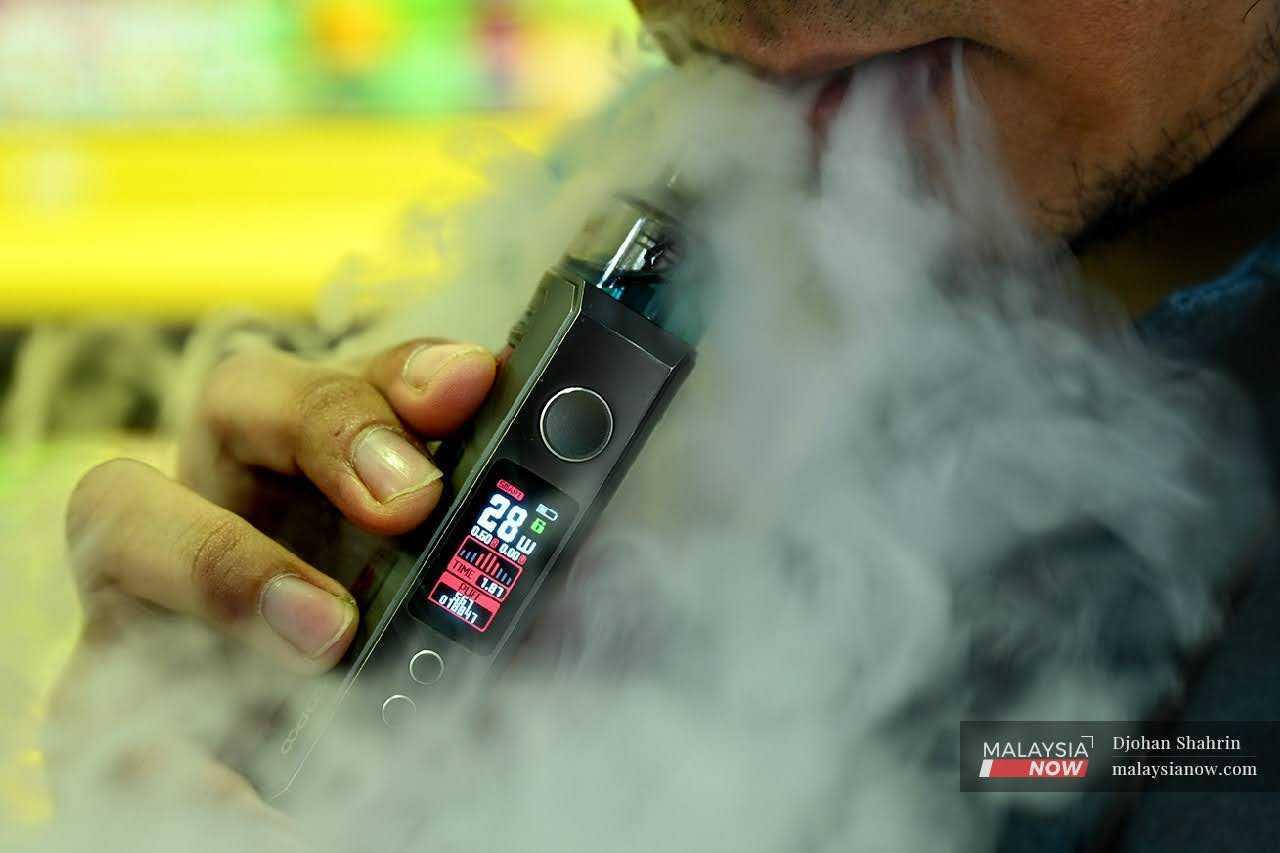PAS, Umno leaders join health experts' outrage over govt move to delist vape nicotine
They caution the government against prioritising revenue, and warn that the addictive substance can now be easily consumed by the youth.
Just In
Two medical doctors from PAS and Umno have joined the criticism against the government's move to delist liquid nicotine as a controlled substance, echoing a warning from anti-tobacco campaigners and medical experts that the decision will lead to a health crisis with youths gaining easier access to vaping products.
PAS' Dr Izani Husin, the Kelantan exco member in charge of health, described the decision by Health Minister Dr Zaliha Mustafa despite strong objections from the medical fraternity as a "dark hour for the nation".
"The move has allowed the uncontrolled and widespread sale of electronic cigarettes (e-cigs) or vape products, whether to youth or students," he said.
He also urged the minister to revoke the decision.
"We long for a smoke- and drug-free generation who will lead the country in the future," he said.
The Malaysian Pharmacists Society was among the groups opposed to delisting liquid and gel nicotine, the main ingredient for vape products – a move seen as facilitating the new vape tax announced by Prime Minister Anwar Ibrahim in his 2023 budget speech.
The Malaysian Council for Tobacco Control meanwhile warned that even children could now legally vape.
"You can buy vape like you can buy curry puffs now," its chairman Dr M Murallitharan was quoted as saying by the New Straits Times.
Public health group Galen Centre for Health and Social Policy meanwhile slammed the move as "exceptionally regressive", claiming that the government was after more revenue at the cost of public health.
Izani said the vape tax showed that the government could not be bothered about the long-term effects on public health, adding that it was against the health ministry's efforts to rid Malaysia of any nicotine addiction.
"The effect of nicotine is not only addictive. Research shows that exposing the brain to nicotine in teenagers is very harmful as this is a critical stage of brain development, and there is a risk of youths trying illegal substances that could lead to drug abuse," he added.
The decision was also criticised by Umno Youth chief Dr Akmal Saleh, who said it was effectively a licence for Malaysians of all ages to consume nicotine.
Akmal agreed with critics who said the government should have first ensured the passing of the Control of Tobacco Products and Smoking Bill, also known as the generational endgame (GEG), aimed at eradicating smoking and vaping in future generations.
"The rationale behind this is the GEG needs to be implemented first, only then should the government remove liquid vape nicotine from the Poisons Act so that high taxes can be imposed on users who do not belong to the end generation, in order to reduce the rate of vape use in society," he said as quoted by Umno Online.
Akmal also warned the government that the health implications far outweighed the profit from tax collected on vape.
The GEG bill was championed by Zaliha's predecessor Khairy Jamaluddin, and would have seen a ban on the consumption of tobacco products or substitutes on those born after 2007.
It was however criticised by some Pakatan Harapan (PH) leaders including Anwar during his time as the opposition leader.
The bill was not passed following delays caused by PH leaders who called for a special parliamentary committee to examine it.
Subscribe to our newsletter
To be updated with all the latest news and analyses daily.
